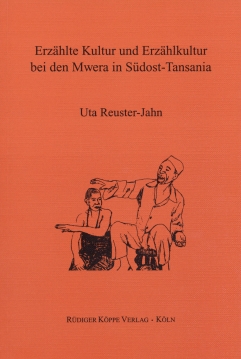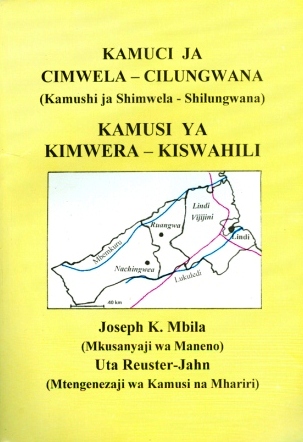



The present study is a documentation and survey of oral literature of the Mwera of south east Tansania. Part of this literature consists of ndango, fictional and traditional stories which are determined by their content as well as the way and the circumstances of their performance. Mwera is a Bantu language counted among the Yao cluster (P.20), together with Makonde, Yao, Ngindo und Ndonde, spoken by about 469.000 people (estimation of 2001). In the past, the language and culture of the Mwera have been studied only slightly.
The basis of this analysis is formed by the organic units of three narrative sessions that were recorded in two villages, comprising 29 stories. These stories are discussed concerning both their content and their performance. In particular, the interaction between the participants during the narrative performance (chapter 7) is of special interest in this analysis, a point touched upon only intermittently in past studies of oral literature. The author defines the role of a respondent who functions as a representative listener who provides reactions and counterpoints the narration, but at times also functions as a co-narrator. An innovative feature of this study is the employment of conversation analysis to describe the activities of narrator and respondent.
The appendix contains an extensive textual documentation, consisting of transcripts of the Mwera performances and their German translations by the author. Furthermore, a typology of audience interaction during narrative processes in Africa is attempted, using the representations of audience responses contained in published documentations of oral literature.
A reader on African literatures and a dictionary of Mwera–Swahili have also been published in our programme, see under additional material.
Following the link below you will find a paper collection in memoriam of Thomas Geider (* 25 April 1953, † 15 October 2010) who supervised the author when finishing her research.
Sigrid Schmidt in Fabula, 44/2003, 360-362
Jan J. de Wolf in Afrika und Übersee, 84/2001, 306-309
© 2026 by Rüdiger Köppe Verlag – www.koeppe.de